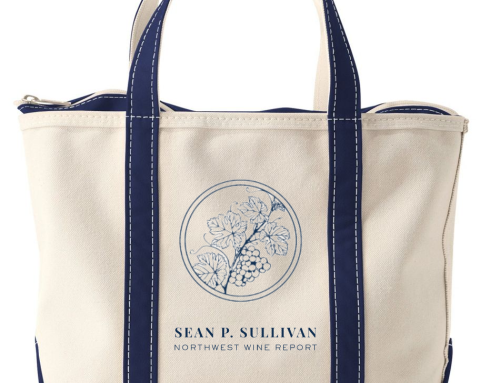
The overall economic impact of the Washington wine industry is $8.6B annually in state, $14.9B nationally. The industry creates 27,000 jobs in Washington, $1.2B in wages, and $238M in taxes. There are 2.4M tourist visits annually with $1.1B in associated spending. All of these numbers were up significantly from 2007, the last time such a study was undertaken.
In addition to its economic data, the report is a smorgasbord of interesting information. Walla Walla County has the highest concentration of wineries – 123 – just ahead of King County at 117. Benton County has the highest overall production, accounting for 41.6% of Washington wine – a staggering figure – followed by Grant County at 22.8%. These two counties, along with King (17.2%) account for 81.6% of all of Washington’s wine production. 35 wineries account for 95% of the state’s production meaning that approximately 700 wineries account for the final 5%.
11.2M cases of Washington wine were produced in 2010 with a $1.47B retail value. Washington wineries employee 3,630 full time employees. Wine grapes are the state’s third most important fruit crop behind apples and cherries. 35,000 acres are currently in production with another 8,000 due to come on-line in the next two to three years – a substantial increase.
Estate grown grapes made up 29% of Washington’s crushed grapes in 2010, an indication of how few Washington wineries have their own vineyards at present. Not surprisingly, Riesling, Cabernet, Chardonnay, and Merlot represent 80% of the state’s total production.
With its focus on the economic impacts, the implications for the study are clear. The Washington wine industry is a revenue generator – a big one. It creates jobs locally and nationally and creates tax revenue. Importantly, the industry has continued to thrive despite the downturn in the economy.
Washington Wine Commission Executive Director Steve Warner says, “This report shows that Washington State wine is a vibrant and thriving contributor to the regional and national economies.”
While the report gives much to be positive about, there are some cautionary notes as well. In one section the report states, “Building a coherent national reputation, especially at the consumer level, with so many very small brands and such a diversity of wines, is a challenge.” Indeed.
The Washington Wine Commission commissioned the study, which was conducted by California-based Stonebridge Research Group. The last economic impact study was conducted in 2007. However, this is the first time data by county has been available, and it is therefore considered to be a baseline for future studies.
Washington Wine Commission chairman Kent Waliser says of the report, “It really demonstrates at a particular point in time what we’ve accomplished over the last forty or so years in this industry.”
Noting that it is gratifying to look back Waliser says, “While this is a great accomplishment to acknowledge forty years of work, what we’re looking for is the next forty years.” Here’s to that.







The next 40 years you say… let's see… in 40 years I'll be… HEY, how about those Mariners!
PaulG, that thought had occurred to me as well. How *about* those Mariners? They make me happy I'm a Red Sox fan…almost.
What's driving production in Grant County?
Anon, the Grant County production is coming out of Mattawa from Milbrandt, Wahluke Wine Company's custom crush facility, and J&S Crushing's custom crush facility.